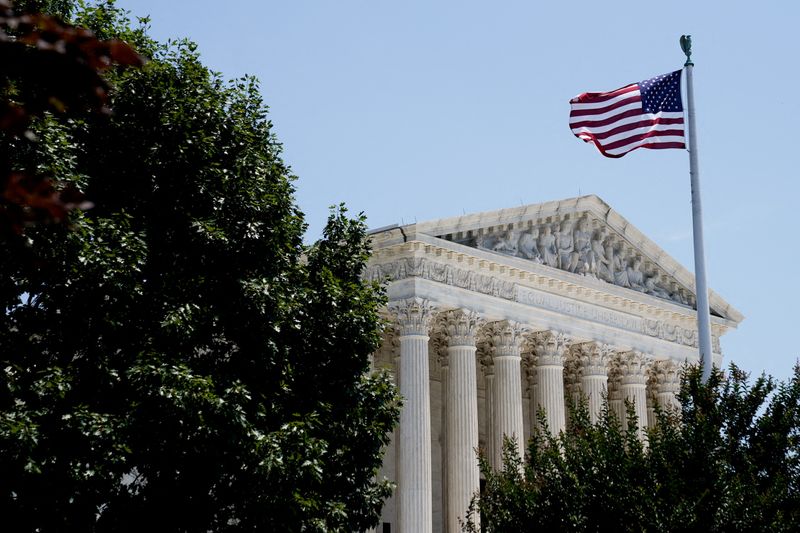By Andrew Chung
(Reuters) -Yeshiva University cannot bar a LGBT student club after the U.S. Supreme Court on Wednesday refused to block a judge's ruling ordering the Jewish school in New York City to officially recognize the group.
The justices, in a 5-4 decision, declined to put on hold a state court ruling that a city anti-discrimination law required Yeshiva University to recognize Y.U. Pride Alliance as a student club while the school pursues an appeal in a lower court.
The decision appeared to direct the case back to the state court system. "The application is denied because it appears that applicants have at least two further avenues for expedited or interim state court relief," the decision said.
Conservative Justices Samuel Alito, Clarence Thomas, Neil Gorsuch and Amy Coney Barrett dissented. Liberal Justice Sonia Sotomayor had temporarily blocked the judge's order last Friday while the justices considered the university's request.
Eric Baxter (NYSE:BAX), a lawyer with the Becket Fund for Religious Liberty conservative legal group representing the school, emphasized that if the state courts do not provide relief, "they can return to the Supreme Court to seek its protection again. We will follow the court's instruction."
Katie Rosenfeld, a lawyer for Y.U. Pride Alliance, called the decision a "victory for Yeshiva University students who are simply seeking basic rights that are uncontested at peer universities."
"At the end of the day, Yeshiva University students will have a club for peer support this year, and the sky is not going to fall down," Rosenfeld added.
The group formed unofficially in 2018 but Yeshiva determined that granting it official status would be "inconsistent with the school's Torah values and the religious environment it seeks to maintain."
The dispute hinges in part on whether Yeshiva is a "religious corporation" and therefore exempt from the New York City Human Rights Law, which bans discrimination by a place or provider of public accommodation.
New York state judge Lynn Kotler in June determined that the school's primary purpose is education, not religious worship, and it is subject to anti-discrimination law. Kotler also rejected the university's argument that forcing it to recognize the club would violate its religious freedom protected under the U.S. Constitution's First Amendment.
In his dissent on Wednesday, Alito wrote, "The First Amendment guarantees the right to the free exercise of religion, and if that provision means anything, it prohibits a state from enforcing its own preferred interpretation of Holy Scripture. Yet that is exactly what New York has done in this case, and it is disappointing that a majority of this court refuses to provide relief."
After higher state courts in August refused to stay the judge's ruling, Yeshiva turned to the U.S. Supreme Court.
"As a deeply religious Jewish university, Yeshiva cannot comply with that order because doing so would violate its sincere religious beliefs about how to form its undergraduate students in Torah values," the school told the Supreme Court.
The Modern Orthodox Jewish university, based in Manhattan, has roughly 6,000 students enrolled in undergraduate and graduate programs. Among the school's values, according to its website, are believing in "the infinite worth of each and every human being" and "the responsibility to reach out to others in compassion."

Powered by its increasingly assertive conservative justices, the U.S. Supreme Court in recent years has expanded religious rights while narrowing the separation between church and state.
In its upcoming term, which begins on Oct. 3, the court will decide a major new legal fight pitting religious liberty against LGBT rights involving an evangelical Christian web designer's free speech claim that she cannot be forced under a Colorado anti-discrimination law to produce websites for same-sex marriages.
